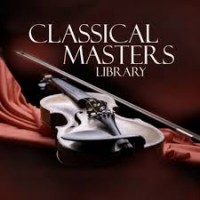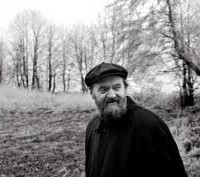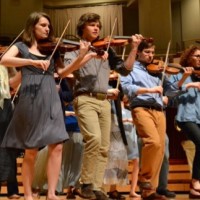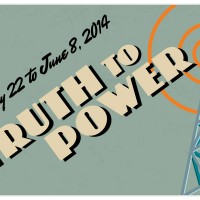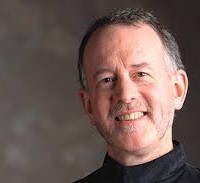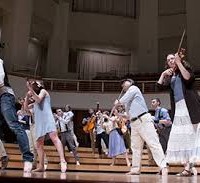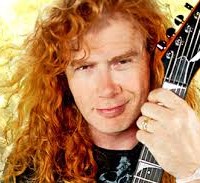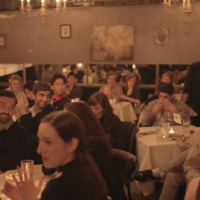[contextly_auto_sidebar id="NFgJWmQrnMTxeBiz7WlmqgGlHwt2cIYa"] One of my recurrent thoughts is that classical music (you've read it here) has to become a contemporary art. And in two recent posts — here and here — I've blogged about concerts that seemed to do that. But they did it largely by playing new music. How can older classical music — all those familiar masterworks — sound contemporary? Because most of the time they don't. Or let me qualify that. Most performances of works from the classical canon live — or at least I think so — … [Read more...]
Archives for 2014
Another concert for today
[contextly_auto_sidebar id="df1klMs6MIWOAfPs56ROqiMMngoYGiwl"] i've been saying that classical music needs to be a contemporary art. Gave an example here of how it can be. Here's another one. Imagine the Kennedy Center concert hall at 6 PM this Tuesday, packed with people attending a concert of works by a living composer. The concert, featuring an orchestra and chorus, was scheduled as one of the Center's daily Millennium Stage productions, which take place in one part of the lobby, with removable chairs, for what's looked, to me, like a … [Read more...]
Essential video
[contextly_auto_sidebar id="7AvneDP3QsFnKhR45OJpSm0moIBSuDkC"] I blogged awhile ago about the extraordinary Appalachian Spring, performed by the University of Maryland Symphony Orchestra, with the musicians playing from memory and dancing. Now there's a video. Watch it! I think you'll be inspired. And if you haven't seen it, you also might watch the group's earlier video of Afternoon of a Faun, also played from memory and danced. These two performances, Faun and Appalachian Spring, are some of the most extraordinary musical work being … [Read more...]
A performance for the present day
[contextly_auto_sidebar id="csN5HKQJHsh15Un1vW2SD88emB390jWq"] I've said many times — most recently here — that classical music needs to be a contemporary art. But what does this mean? That's a long discussion, one that deserves a full chapter in a book, or maybe even a book of its own. But I'd like to start on it now, with some blog posts in the next month or so. And what I'd like to address today is maybe the hardest part of the discussion (or at least the part we might not have thought too much about), which is what -- once … [Read more...]
Speak truth to power
[contextly_auto_sidebar id="HkrgFg74uvgItTDBxhVGsY6oYtLgjafA"] "Truth to Power": That's the name of a festival the Chicago Symphony is offering from May 22 to June 5, with the idea of highlighting "music's ability to connect people and harness the power of shared experience," and to "inspire justice and fairness." The title, of course, is a shortening of "Speak truth to power," one of the most powerful rallying cries in politics. It comes from a Quaker manifesto, published in 1955, about the need for peace, to be fulfilled by active … [Read more...]
A stunning manifesto
[contextly_auto_sidebar id="RXfE9O9GJVymPgMcaUmQBAuCEx5vzm9P"] In my last post, I raved about the incredible University of Maryland performance of Appalachian Spring, with the musicians playing from memory and dancing, a sequel to the student orchestra's similar performance of Afternoon of a Faun two years ago. But performances like these don't happen on some sudden whim. They have a history. They grow from some serious thinking about what classical music should be, and about what classical music students should be taught. And in this case … [Read more...]
A very special concert
[contextly_auto_sidebar id="FmSYnn3rOGhTVDgg97VEe5Ou89SzFtGR"] We often say music is moving, without really thinking about what the word means. Our actual experience of classical music tends to be still. The musicians may sway a bit when they play, and we in the audience may tap our toes, but there’s a sense that such movements are involuntary outbursts in a climate in which they are meant to be suppressed. On Sunday afternoon at the Clarice Smith Center, the University of Maryland Symphony Orchestra offered a literally moving performance. … [Read more...]
The burden of the past
[contextly_auto_sidebar id="ZzimVSUM4IMse9NvooQKbHWovZP4HIlJ"] Exhibit A: A question asked at a panel discussion on the future of classical music. I’m paraphrasing, but the questioner said we hadn’t been talking about our subject. We’d been talking about ways that classical music could change. But then we’re not talking about classical music. We’re talking about the future of something else. What about the future of all the old ways of doing classical music, the ways classical music has been presented for much of the last century? Exhibit … [Read more...]
Measuring success
[contextly_auto_sidebar id="jbun5DGmmxWBseMNdsmmWShezjYLTTqQ"] Not long ago I spent some time with the executive director of a regional orchestra. She'd set some changes in motion, some well thought-out new programming that might develop a new audience, and root the orchestra more deeply in its community. As she and I talked, I got curious about something I often wonder about, which is how the success of these changes might be measured. How do you know if they're working? I've seen situations in which that question isn't asked, leading to … [Read more...]
From Peter Sachon: Millennial America
[contextly_auto_sidebar id="o4pzOOfXo9bqyyMDkHdZBhhEoZyYviA1"] From Greg: Peter Sachon is one of many people I've met by writing this blog, one of many people doing striking new things in classical music. And having striking new thoughts. He's also a wonderfully good cellist. He sent me a link to a blog post he'd done for the Polyphonic.org website (see below for more on that), and what he wrote immediately spoke to me. It's about something I've written about, and certainly others have — the gap between classical music and the rest of our … [Read more...]
Institute for Advanced Study
[contextly_auto_sidebar id="5dp52etBr5l7OwD57zlyXeHJhxDx9NCx"] Here's an idea, which I owe to someone who runs an important classical music institution in the US. He's not going to act on it himself, so I feel free to present it. And, without meaning to be coy, I don't feel comfortable naming him, because he hasn't come out in public as someone hungry for change in classical music. Which means, just in passing, that he illustrates something I've said from time to time, here and elsewhere — that it's hard, at least in the US, to find someone … [Read more...]
Sandwiched in
[contextly_auto_sidebar id="p8BLXu6VQHCNZMl39keQjaabDV99sBvz"] On April 12, the fabulous thrash-metal guitarist Dave Mustaine — founder and leader of Megedeth — played with the San Diego Symphony. Two movements from The Four Seasons, Summer and Winter, and Bach's "Air on the G String." The link takes you to the Symphony's page on the event, but you can also read a feature article on the concert here. Mustaine might also have joined the orchestra for the "Ride of the Valkyries." As we'll see, they were a little coy in advance about … [Read more...]
Voice of a generation
[contextly_auto_sidebar id="xDEct08SYQ5bXn7Oms8JPB3bB0k943jL"] So now a followup to my post two days ago, in which I said that arts marketing won't reach a younger audience unless it treats the arts as popular culture as equals. Here's a further exploration of that. Not a how-to, but more about the point of view we need. A couple of weeks ago, the pop music critic of the Washington Post, Chris Richards, had a nice piece about Kurt Cobain. Not only was Cobain the voice of his generation, Richards said. He was also a seminal guitar … [Read more...]
Time to join the wider world
[contextly_auto_sidebar id="pfSmXqgTHAQShJmolPiGE9IOChD57kxP"] Sometime this fall, I expect to give a talk at an arts marketing conference. I was asked for a title and summary of what I might say, and came up with what follows, aimed at younger people who might be attending. "Time to Join the Wider World" was my title, and I think it's a concept that applies not just to the arts in general, but very strongly — very strongly — to classical music. How I happen, at age 70, to find myself on the younger side of a generational divide is a … [Read more...]
From Julia Villagra: Wooing my peers (2)
[contextly_auto_sidebar id="YEJkw3attbuMW2eNDMPgWuIa2CwKifkG"] [The story so far: Julia Villagra, 30 years old, might be a reasonably typical New Yorker of her generation. As she said in her first post, "My Spotify playlists are a mishmash of Jay-Z, Ravel, Dirty Projectors, Lorde, Britten, M.I.A, Macklemore, Beethoven, Brahms, Daft Punk, and the Gotan Project." [But note the classical items. This is one way that Julia isn't so typical. She has a degree in classical vocal performance from Boston University. When she decided she wanted to draw … [Read more...]

